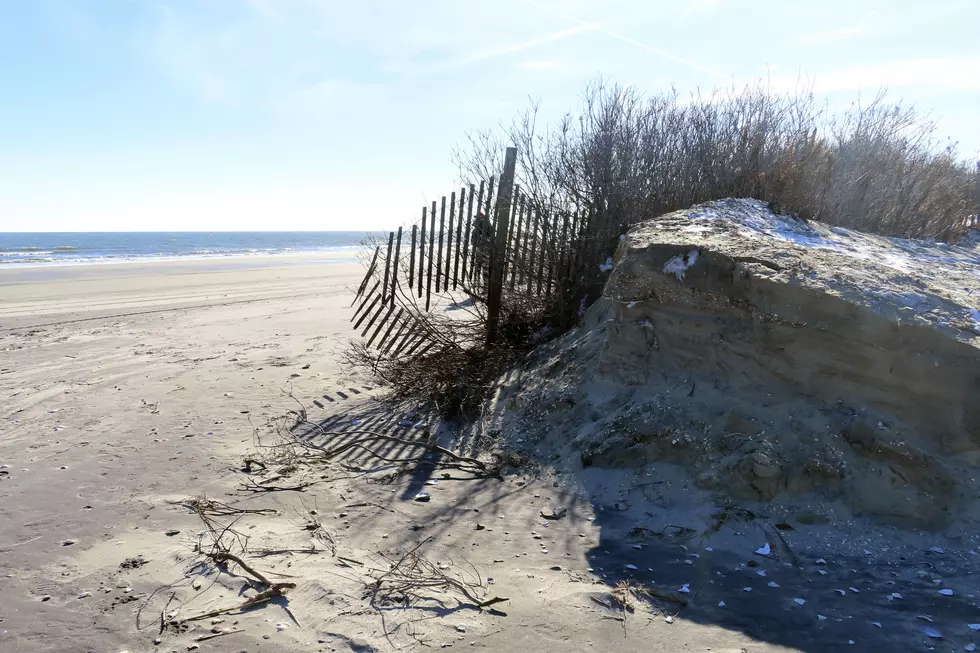![Should Horse Slaughter for Human Consumption be Banned in the US? [POLL]](http://townsquare.media/site/385/files/2013/04/horse.jpg?w=980&q=75)
Should Horse Slaughter for Human Consumption be Banned in the US? [POLL]
Here in New Jersey, a law’s been passed to ban the slaughter of horses for human consumption,as well as the transporting of horses out of state to be slaughtered.
My first impression was that I didn’t see anything wrong with shipping horses out of state to eventually be consumed. It’s considered a delicacy in other countries; and my thinking at the time was why waste perfectly good horsemeat once there’s no way to take care of these animals.
However, I had to weight that against the love my wife, my dad, and even I have developed for horses.
When I’d taken part in the Open Space Pace some months ago, I experienced the thrill of riding in a sulky, and actually winning a race at Freehold Raceway (albeit a race with only myself and one other “horseman”!)
So despite all that, it’s hard for me to imagine anyone sending off the beloved animals to some processing plant out of state to eventually wind up as dinner for someone abroad.
And even though my reasoning is based more on emotion, I'm more than willing to support a federal ban on the slaughter of horses for human consumption.
In New Mexico, Valley Meat Co. is a former cattle slaughterhouse whose kill floor has been redesigned for horses to be led in one at a time, secured in a huge metal chute, shot in the head, then processed into meat for shipment overseas.
It's also ground zero for a debate over a return to domestic horse slaughter that has divided horse rescue and animal humane groups, ranchers, politicians and Indian tribes.
At issue is whether horses are livestock or pets, and whether it is more humane to slaughter them domestically than to ship tens of thousands of neglected, unwanted and wild horses thousands of miles to be slaughtered in Mexico or Canada.
Front and center of the debate is Rick De Los Santos, who along with his wife, Sarah, has for more than two decades worked this small slaughterhouse, taking in mostly cows that were too old or sick to travel with larger herds to the bigger slaughterhouses for production.
Now, with cattle herds shrinking amid an ongoing drought, De Los Santos says he and his wife are just trying to transform their business and make enough money to retire by slaughtering domestically some of the thousands of horses that he says travel through the state every month on their way to what are oftentimes less humane and less regulated plants south of the border.
De Los Santos said, "They are being slaughtered anyway. We thought, well, we will slaughter them here and provide jobs for the economy,"
Instead, Valley Meat has been ensnarled in a yearlong political drama that has left the plant idle and its owners the target of vandalism and death threats — warnings that increased after humane groups found a video a now-former plant worker posted of himself cursing at animal activists, then shooting one of his own horses to eat.
Indeed, voice mails left on the company's answering machine spew hate and wishes for violence upon the family.
The couple have hired security and turned over phone records to federal authorities. They are, nevertheless, surprisingly candid about their plans, offering media access to the 7,200-square-foot slaughterhouse with one kill floor and two processing rooms that De Los Santos says can process 50 to 100 horses a day.
Sarah De Los Santos says… "It's complicated, this industry of feeding the world. The meat would be processed for human consumption and exported to countries in Eastern Europe and Asia.
The Obama administration wants to prohibit such slaughters. The administration's 2014 budget request excludes money for inspectors for horse slaughter plants, which would effectively keep them from operating.
Humane groups and politicians including Gov. Susana Martinez and New Mexico Attorney General Gary King strongly oppose the plant. They argue that horses are iconic animals in the West, and that other solutions and more funding for horse rescue and birth control programs should be explored over slaughter.
Still others are pushing for a return to domestic slaughter.
Proponents include several Native American tribes, the American Quarter Horse Association, some livestock associations and even a few horse rescue groups that believe domestic slaughter would be more humane than shipping the animals elsewhere.
They point to a 2011 report from the U.S. Government Accountability Office that found horse abuse and abandonment increasing since Congress effectively banned horse slaughter by cutting funding for federal inspection programs in 2006.
Because rescue groups can't take care of all of the horses in need, tens of thousands have been shipped to slaughterhouses in Mexico.
Given the fact that a good many horses can’t be taken care of wind up abandoned or abused would give credence to the argument of shipping them to plants such as the one described above.
Again, why waste perfectly good horse meat, especially if there's a demand for it abroad?
That's assuming it’s “perfectly good” to begin with; which, in many cases, it may not be.
And besides, while the attachment we have to the horse is an emotional one, it’s one that should not allow us to treat one of our most iconic animals (and for that matter, our state animal) as dinner.
More From New Jersey 101.5 FM









